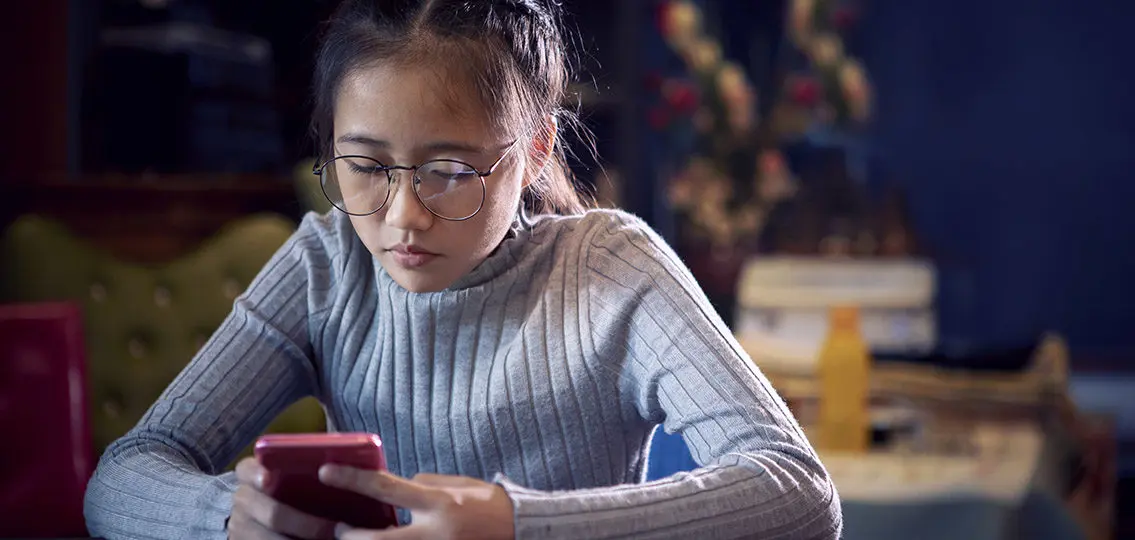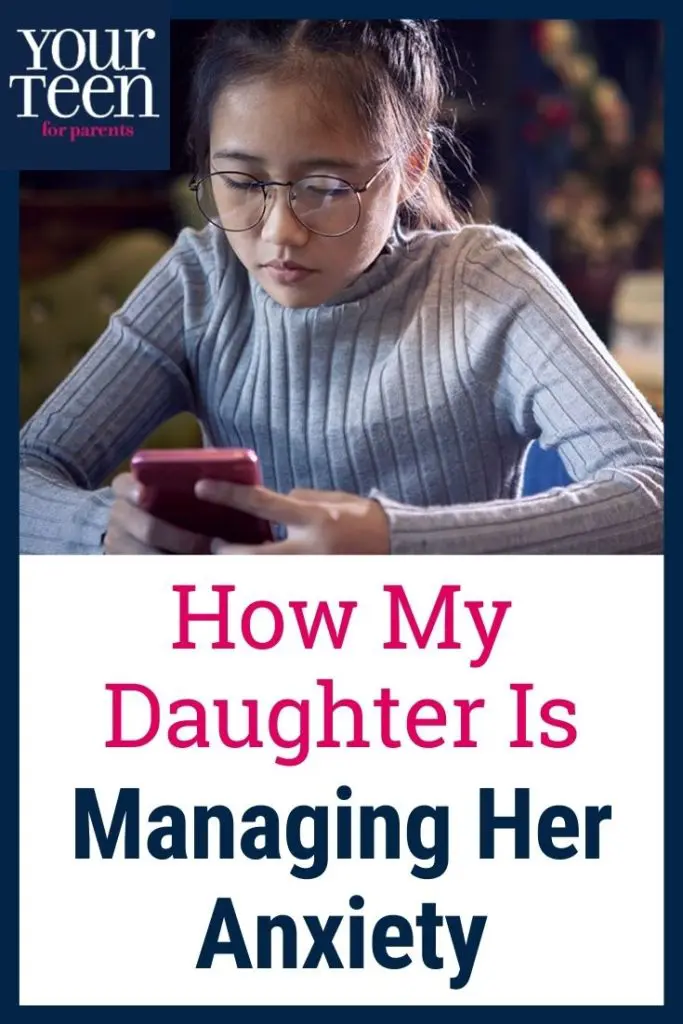Like clockwork, as the dog days of summer slowly faded into the crisp fall, my worries about the coming school year would surface. I would steel myself for the inevitable: my daughter’s back-to-school anxiety that practically radiated off her shoulders. When she started to worry about lunchroom assignments, new teachers, and whether she would have friends in her classes, I’d find myself awake at night, at a loss for how to help her manage her anxiety.

A Long History of Back to School Anxiety
For years, something as simple as saying, “Would you like to do a little shopping for back-to-school clothes?” would send my daughter into a tailspin. The mere mention that class assignments would be mailed out soon would have her in tears because she was terrified she’d have to break the ice with kids she didn’t know. And the night before the first day of school would find us role-playing and reviewing every detail of where her classes were located so that she would feel confident when she walked through the door.
We would put a lot of advanced preparation into making sure she could feel in control of her fears. But a week or so into a new school year she would come home in a pile of tears. I’ve learned that being an introvert is exhausting. And watching my daughter try to navigate the pressure to connect with friends who didn’t understand her behavior was crushing.
There have been so many tears over the years, both hers and mine.
As an extrovert myself, it was often difficult for me to meet my daughter where she was at when it came to her back to school fears. Simply put, the methods I used to soothe my nerves didn’t work for my independent and introverted girl.
And so, year after year, the months of July and August were fraught with stress, tears, and anxious moments for both of us. We did the best we could to stumble through those first few weeks of school every year. But it usually took at least until late November for me to feel like we’d crossed the hurdles.
When the pandemic hit, we were faced with a new challenge. We didn’t realize how much our daughter relied on the social connections she’d painstakingly built with her small circle of friends. Never one for social media, my daughter often joked that she “peopled” during the week at school and “introverted” on the weekends to recharge.
But, when she was faced with the long days of quarantine, my heart broke for her as she cried about genuinely missing her friends.
I was at a loss yet again.
A few weeks into the pandemic, I noticed my daughter seemed less anxious and I chalked it up to her acceptance of our new pandemic routine.
How Meditation Helped My Daughter Manage Her Anxiety
But, the change in her seemed to go deeper than just less worry and anxiety. She carried her shoulders a little higher and she seemed calmer somehow. She seemed more willing to accept the daily stresses of online learning and she was finding ways to connect with her friends via technology.
I asked her one morning what had caused such a profound change and I was floored by her nonchalance.
“I found an app that helps,” she said, with a shrug.
The “app that helps” turned out to be a meditation app she’d found when researching ways to feel calmer during anxious moments.
Not only had she downloaded the app to her phone but she’d also been heading up to bed a little earlier to quietly do guided meditation before falling asleep. And she did it with little fanfare, too—she had simply found a way to solve what was a big challenge in her life.
“Meditation just seems to help,” she confided. My daughter told me that her meditative practice before bed helped during the day when she felt her fears creeping in. “I just stop and take a look at my surroundings and ground myself. Even if it means just touching the chair I’m in and reminding myself that I’m in control.”
As she described how much meditation has helped her find her way, my eyes filled with tears. Only this time, they were tears of relief.
I have never been prouder of her.
Many of the stressors my daughter faces now are different from anything I had to deal with at her age. I’m learning that by encouraging her to be introspective and to listen to what her mind and body needs, she’s finding her way without me having to micromanage her life. Of course, if there ever comes a time when her anxiety is too much to manage, by all means, her father and I will be there to help her find the right mix of therapy and support. But, for right now, watching my daughter head upstairs at the end of the day with a smile on her face because she knows she’s about to make her mental health a priority not only eases my stress makes me want to meditate, too.






